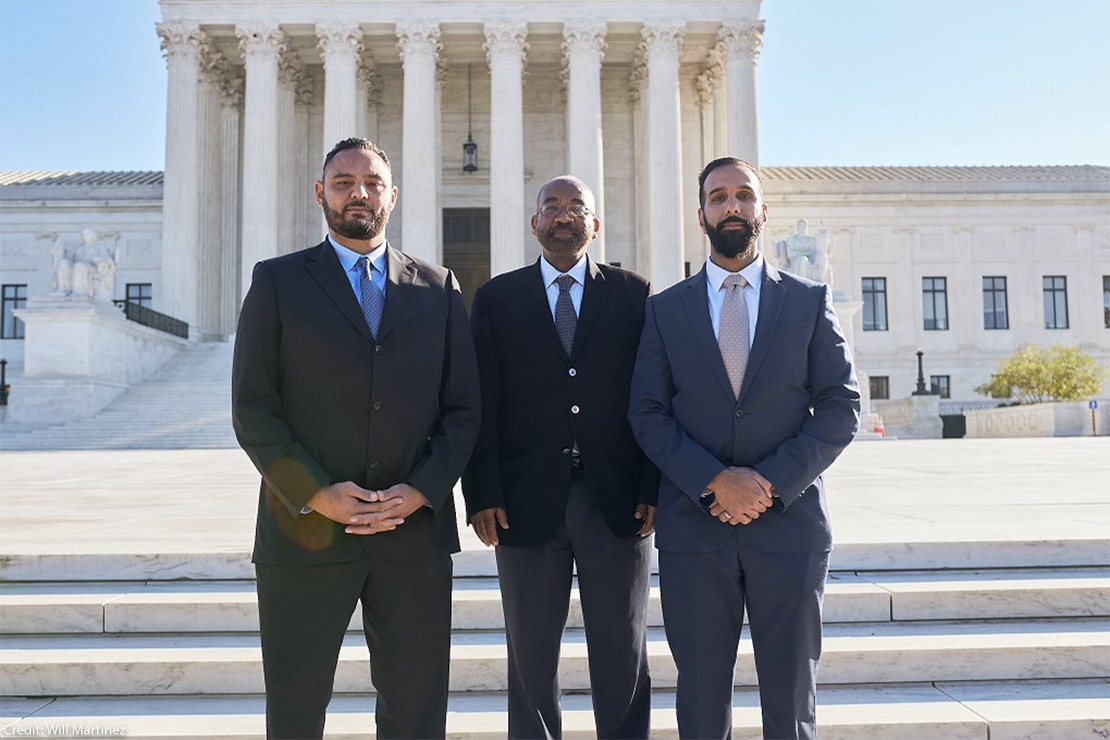Privacy & Technology
FBI v. Fazaga
In a case scheduled to be argued before the U.S. Supreme Court on November 8, 2021, three Muslim Americans are challenging the FBI’s secret spying on them and their communities based on their religion, in violation of the Constitution and federal law. In what will likely be a landmark case, the plaintiffs — Yassir Fazaga, Ali Uddin Malik, and Yasser Abdelrahim — insist that the FBI cannot escape accountability for violating their religious freedom by invoking “state secrets.” The plaintiffs are represented by the Center for Immigration Law and Policy at UCLA School of Law, the ACLU of Southern California, the American Civil Liberties Union, the Council for American Islamic Relations, and the law firm of Hadsell Stormer Renick & Dai.
Status: Closed (Judgment)
View Case
Learn About Privacy & Technology
Featured
U.S. Supreme Court
Jun 2018
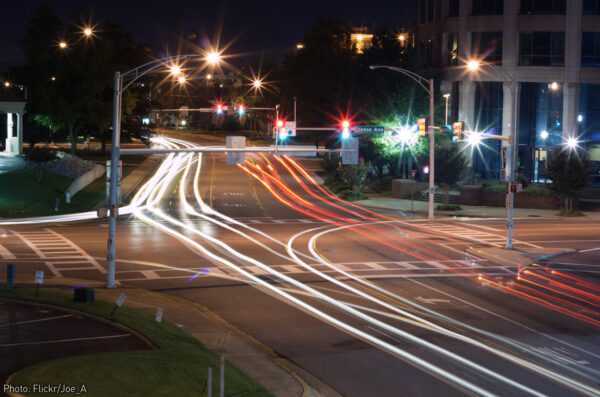
Privacy & Technology
Carpenter v. United States
The Supreme Court ruled that the government needs a warrant to access a person’s cellphone location history. The court found in a 5 to 4 decision that obtaining such information is a search under the Fourth Amendment and that a warrant from a judge based on probable cause is required.
Court Case
Dec 2016
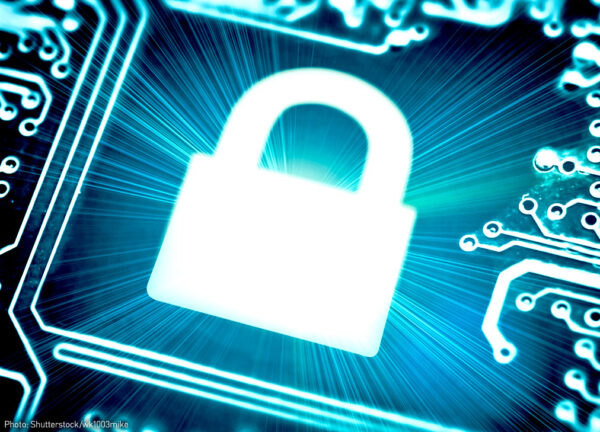
Privacy & Technology
Sarkar v. Doe - PubPeer Subpoena Challenge
The ACLU filed a motion in Michigan state court challenging the constitutionality of a subpoena issued to the website PubPeer demanding that it turn over the identities of anonymous commenters. In March 2015, the trial judge ruled that PubPeer had to unmask one – but only one – of the commenters. Both PubPeer and the researcher appealed, and the ruling was upheld in December 2016.
All Cases
70 Privacy & Technology Cases
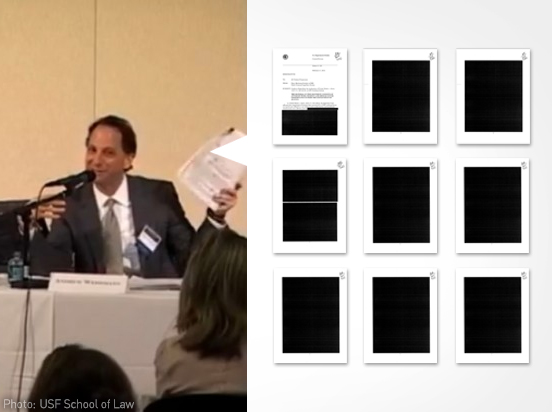
Court Case
Mar 2014
Privacy & Technology
FOIA Request for Justice Department Policy Memos on GPS Location Tracking
The ACLU filed a Freedom of Information Act request with the Department of Justice in July 2012 seeking the release of two memos providing guidance to federal prosecutors and investigators for using GPS devices and other location tracking technologies. The memos were written in response to the Supreme Court’s landmark decision on location tracking, U.S. v. Jones. The ACLU filed a lawsuit to enforce the request in August 2012, and in January 2013, the government handed over the memos – but they were almost entirely redacted. Oral argument in the case is scheduled for August 15 in New York.
Explore case
Court Case
Mar 2014

Privacy & Technology
FOIA Request for Justice Department Policy Memos on GPS Location Tracking
The ACLU filed a Freedom of Information Act request with the Department of Justice in July 2012 seeking the release of two memos providing guidance to federal prosecutors and investigators for using GPS devices and other location tracking technologies. The memos were written in response to the Supreme Court’s landmark decision on location tracking, U.S. v. Jones. The ACLU filed a lawsuit to enforce the request in August 2012, and in January 2013, the government handed over the memos – but they were almost entirely redacted. Oral argument in the case is scheduled for August 15 in New York.

U.S. Supreme Court
Feb 2014
Privacy & Technology
Free Speech
Alice Corporation Pty. Ltd. v. CLS Bank International
Whether the idea of using a third party to settle financial accounts among financial institutions to minimize risk through the use of a computer program can properly be patented.
Explore case
U.S. Supreme Court
Feb 2014

Privacy & Technology
Free Speech
Alice Corporation Pty. Ltd. v. CLS Bank International
Whether the idea of using a third party to settle financial accounts among financial institutions to minimize risk through the use of a computer program can properly be patented.
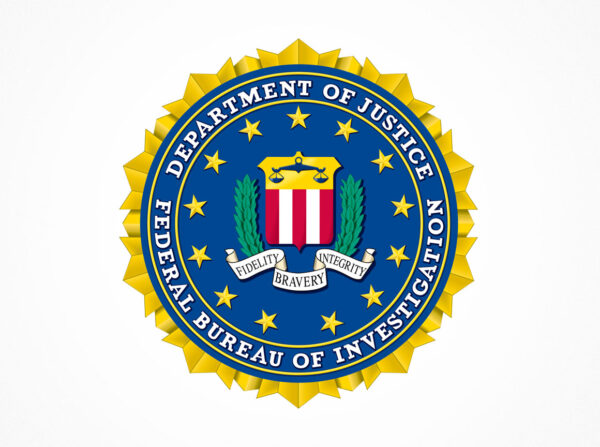
Court Case
Oct 2013
Privacy & Technology
+4 Issues
ACLU v. FBI - eGuardian FOIA Lawsuit
Government documents obtained by the ACLU show that nationwide programs that collect so-called "Suspicious Activity Reports" provide inadequate privacy safeguards and guidance on the definition of "suspicious activity," leading to violations of Americans' First Amendment and privacy rights, and to racial and religious profiling.
Explore case
Court Case
Oct 2013

Privacy & Technology
+4 Issues
ACLU v. FBI - eGuardian FOIA Lawsuit
Government documents obtained by the ACLU show that nationwide programs that collect so-called "Suspicious Activity Reports" provide inadequate privacy safeguards and guidance on the definition of "suspicious activity," leading to violations of Americans' First Amendment and privacy rights, and to racial and religious profiling.

U.S. Supreme Court
Jun 2013
Privacy & Technology
+3 Issues
Association for Molecular Pathology v. Myriad Genetics
Whether human genes can be patented.
Explore case
U.S. Supreme Court
Jun 2013

Privacy & Technology
+3 Issues
Association for Molecular Pathology v. Myriad Genetics
Whether human genes can be patented.

U.S. Supreme Court
Jun 2013
Privacy & Technology
+2 Issues
Maryland v. King
Whether collecting and analyzing DNA samples from arrestees without a warrant or consent violates the Fourth Amendment.
Explore case
U.S. Supreme Court
Jun 2013

Privacy & Technology
+2 Issues
Maryland v. King
Whether collecting and analyzing DNA samples from arrestees without a warrant or consent violates the Fourth Amendment.
